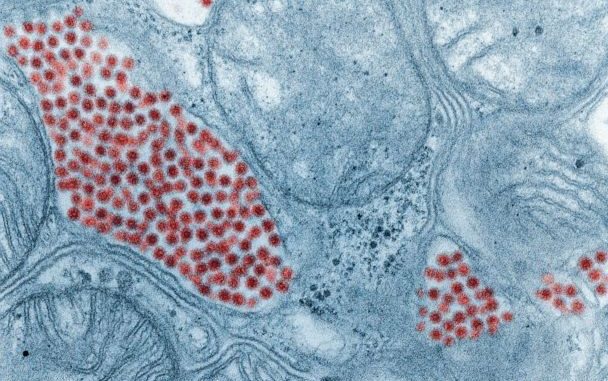
Elections in the time of COVID-19: Masks, hand washing on election day
Voters will be required to wear masks or face shields on Election Day.
They must also wash or sanitise their hands before and after casting their ballots.
These are some of the guidelines that must be followed on Election Day on August 10.
Speaking at the virtual media conference on Saturday, Chief Medical Officer (CMO) Dr Roshan Parasram said the Ministry of Health is working with the Elections and Boundaries Commission (EBC) to ensure that health guidelines are followed on Election Day.
“I think the electoral process in the past would have lent itself to some of the public health measures that we already have in place. We have been working closely with the EBC to ensure that they are aware of the guidelines that should be put in place. On Friday, I would have shared a final draft of a guideline which we want to publish for the election process, at least to be used in the polling stations on the particular day.”
“The key premises are: social distancing as you go in; masks or face shields should be worn at all times by both persons coming in to the centre as well as persons working in the centre throughout the course of the day; there should be sanitisation or washing of the hands before and entering the centre (it should be witnessed by a member of staff by the EBC) and; sanitising before and after of the ballot stamp.”
He added that on Tuesday, a mock polling station will be set up by the EBC.
“On Tuesday in the afternoon, there will be a mock polling station set up by the EBC where the Ministry of Health would a partner to ensure that the guidelines are rolled out in the way that we would like them to be. Once that goes successfully, we would publish the guidelines to the population.”
The CMO noted that social distancing guidelines were already followed at polling stations.
Dr Parasram said he does not expect that the public health measures will add to the time it takes for individuals to cast their votes.
“When you go to a polling station to actually vote, there is social distancing that is applied even before this public health measure. You can’t be a certain distance away from the person in front of you; that already exists. There’s supposed to be no congregation in the vicinity; that exists as well. I don’t see it being completed different from what has happened in the past. There’s a further emphasis on hand-washing, sanitising, face shields and masks, which would not have been there in the past. But I don’t think it will add to the time that it takes to have the voting being done. I don’t think it could impede anything in anyway.”
The CMO added that provisions will be made to allow individuals in quarantine to vote.
He explained that the ballot will be sanitised before it goes in for counting.
“There is a special section in the guideline that speaks to persons in quarantine which we have shared with the EBC. There are a few persons who would have been in quarantine that would have had to sign personal documents for instance pension, while they were in quarantine. How we manage that is, we have something called a hot zone and a cold zone. There’s a way that we treat the actual piece of paper, taking it from the hot zone to the cold zone. We have them sign or stamp the necessary paper.”
“This will be a function of County Medical Officer of Health overseeing the particular quarantine stations or stations that the persons have to vote from within. We will get those things operationalised, but the process has been used before. It’s just a matter of ensuring that the actual ballot is property sanitised before it goes in for counting.”
Dr Parasram also responded to concerns about the electoral ink.
“I think the critical part of it is that we would have witnessed hand washing as you enter the polling station. It has to be witnessed by an officer from the EBC, whether hand washing or hand sanitising. And of course, having the electoral stamp being sanitised before and after. When we do our mock on Tuesday, we will look at the ink in particular and the application. If there are any changes based on what we see, we can make further recommendations.”
Would provisions be made for campaigning?
Dr Parasram said: “The regulations as it stands now is at 25…In the coming months, I don’t think the decision would be based on having a political rally, the decision would be made based on the status of the health of the population.”


